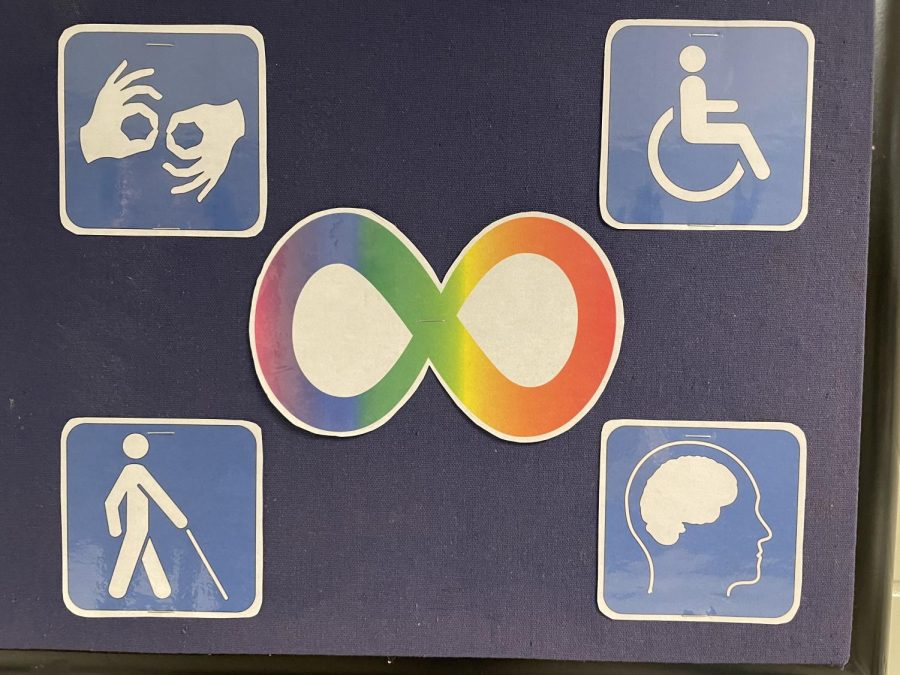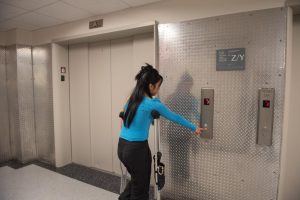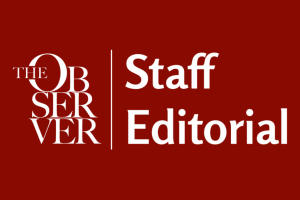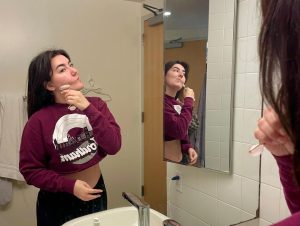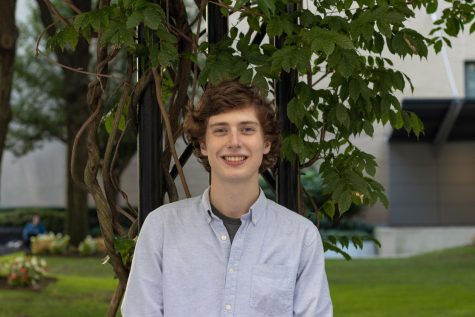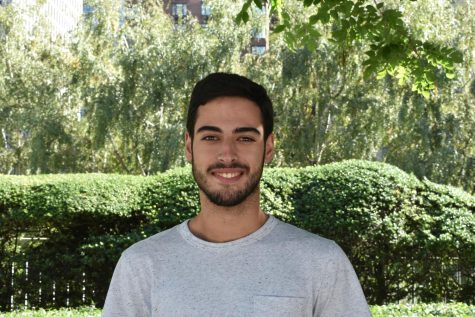Disability Studies Program Advocates for Inclusion
Guest speakers describe the history and shortcomings of societal accessibility at virtual events
The disability studies program hosted several virtual events.
April 11, 2022
To raise awareness for people with disabilities and push for health equity, the disability studies program hosted several virtual events discussing past and present discrimination, as well as the obstacles that people with disabilities continue to face.
Disabilities in an Ableist World
Health equity refers to one’s opportunity to fulfill their health potential. The Division of Human Development and Disability (DHDD) focuses on alleviating health inequities for people with disabilities by helping them contribute to their communities and achieve their goals.
Disability is defined by the Americans with Disabilities Act (ADA) as a mental or physical impairment that heavily limits major life activities. According to data from the Centers for Disease Control and Prevention (CDC), people with disabilities have less access to health care than people without disabilities, are more likely to be depressed or anxious, and tend to be less physically active.
Disability inclusion is critical because people with disabilities are three times more likely to be denied health care.
With around one in four Americans having at least one form of disability, the amount of attention and infrastructure to accommodate this portion of the population is comparatively poor. People living with a disability are far less likely to receive routine health care treatments, and they are more likely to be unemployed.
The DHDD monitors and researches public health data to form programs such as Early Hearing Detection and Intervention, and Autism and Developmental Disabilities Monitoring to start early diagnosis and promote better health and developmental outcomes.
People with disabilities trying to access health care face a variety of obstacles. Many health services and facilities lack accommodations for people with disabilities. These include inconvenient appointment times, outreach services or inaccessible infrastructure in offices.
The World Health Organization states that “disability is often not perceived as a health issue,” which makes it harder to bring about changes in disability inclusion in the health sector. Disability inclusion is critical because people with disabilities are three times more likely to be denied health care, are at a higher risk to experience sexual abuse and are twice as likely to be malnourished.
Fordham Disability Studies Program
Sophie Mitra, professor of economics, and Rebecca Sanchez, associate professor of English, launched Fordham’s disability studies program in the spring 2019 semester.
Mitra explained that the program’s mission is “to provide students with a background in the ways the concepts of disability and normality are understood” by exploring practical and theoretical approaches to increasing accessibility.
The events sponsored by the disability studies program covered related topics on the underrepresentation and historic neglect of those with disabilities. The first event this year was on March 21 and featured Dr. Nicholas Lawson, who serves as commissioner on the American Bar Association Commission on Disability Rights.
Those living with sensory or mobility impairments make up less than 0.5% of the licensed medical population.
Lawson, who lives with attention deficit hyperactivity disorder (ADHD), dyslexia and generalized anxiety disorder, described how graduate students with disabilities continue to be sharply underrepresented in academia. He cited data from a 2021 study, in which only 3% of physicians identify as having a disability. Those living with sensory or mobility impairments make up less than 1.5% of the licensed medical population.
People with mental disabilities such as ADHD are also underrepresented in higher education. People with ADHD make up only 0.3% of licensed physicians despite comprising around 3% of the population. These statistics, according to Lawson, contradict common stereotypes that depict those with mental disabilities as having easier academic careers.
Lawson also discussed how the media often refers to the population of those living with mental disabilities in degenerative or uncontrollable terms. Those living with schizophrenia, for instance, “are consistently seen as being dangerous,” he said.
Filing a strong legal discrimination lawsuit requires “textbook-explicit” proof of discriminatory acts, Lawson said. Thus, cases of implicit discrimination, such as cognitive ability tests or mobility requirements, continue to bar people with disabilities from a wide array of occupations.
“Other marginalized communities would benefit from including people working with disabilities.” Nicholas Lawson, commissioner on the American Bar Association Commission on Disability Rights
Roy Richard Grinker, a professor of anthropology at George Washington University, presented the disability studies program’s sixth annual Distinguished Lecture on April 4. He described how aspects of society continue to stigmatize people with disabilities. But he argued that “ we are at the cusp of ending the marginalization” of those who were previously deemed “abnormal.”
Awareness and Support
Disability advocates argue that a more accessible environment will go a long way in destigmatizing disability. Various proposed legislations meant to provide students with disabilities guaranteed resources and protections have been introduced to Congress over the last year, such as the Allied Health Workforce Diversity Act. Such measures are meant to facilitate inclusion of people with disabilities, as well as racial/ethnic minorities, and those from lower socioeconomic backgrounds.
Lawson argued that “the disability community needs to work more with other marginalized communities” in order to unite their respective demands into a larger movement. “Other marginalized communities would benefit from including people working with disabilities,” he said.
Meanwhile, Grinker called on people to view disability and accessibility under a “social model,” — viewing your social environment as one that determines “disability” rather than individual characteristics. It hasn’t been until the 21st century, Grinker said, that society has begun to accept “that to be non-normal is to be human.”

